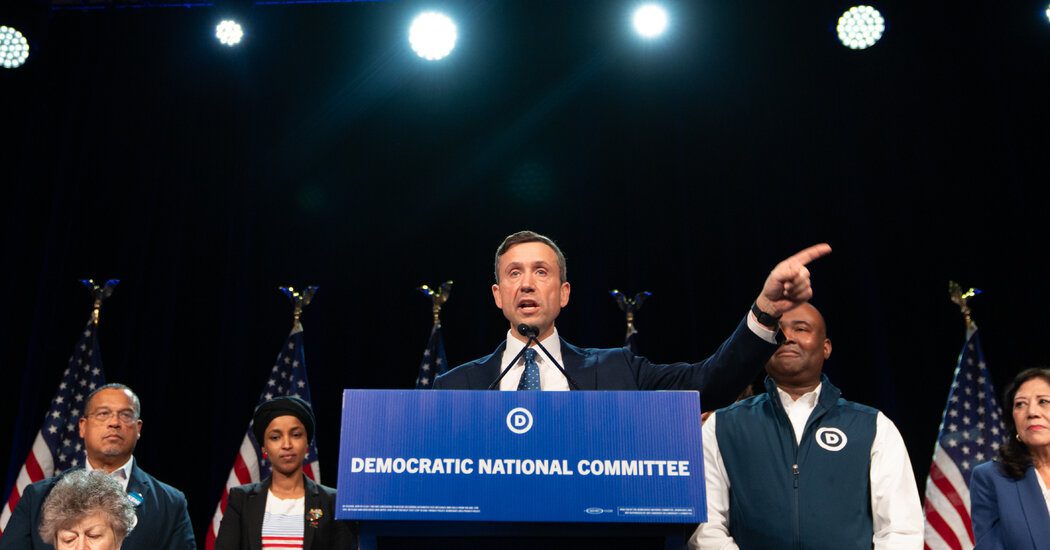

The Democratic Party has initiated a lawsuit against President Trump, asserting that an executive order he signed earlier this month breaches federal election regulations. This legal action, filed in federal court in Washington, D.C., represents the first time the party has taken action against Trump during his second term. The lawsuit coincides with ongoing discussions among Democrats regarding their strategies to counter Trump’s proposed reforms of the federal government.
At the heart of the lawsuit is an executive order aimed at asserting control over independent agencies, including the Securities and Exchange Commission (SEC) and the Federal Election Commission (FEC). The order stipulates that these agencies cannot interpret laws in a manner that differs from the president’s or the attorney general’s interpretations, a move Democrats argue places the oversight of the bipartisan FEC, which oversees federal campaign activities, directly in the hands of the president.
According to the lawsuit, the executive order grants Trump — as leader of the Republican Party — the power to direct the FEC to adopt particular legal stances in relation to its responsibilities. The Democrats further contend that this executive order undermines the authority of Congress and contravenes nearly a century of Supreme Court rulings that uphold Congress’s ability to shield certain agencies and officials from the president’s daily influence.
Democratic leadership has consistently challenged what they describe as the Republicans’ undemocratic tactics to manipulate the electoral landscape. Ken Martin, the new chairperson of the Democratic National Committee (DNC), made it a priority to support a legal challenge against a set of newly implemented Republican-backed election laws in Georgia shortly after taking office.
As of now, neither the White House nor Attorney General Pam Bondi’s office, also implicated in the lawsuit, has provided a comment. The Federal Election Commission has faced long-standing criticism for its perceived ineffectiveness and occasional inability to function properly, at times lacking sufficient members and frequently becoming stalled by partisan disputes, which both political parties have exploited.
In their legal filing, the Democrats reference ongoing complaints before the FEC, including one deemed “meritless” against the Democratic Senatorial Campaign Committee, which alleges the committee misclassified four advertisements during the 2024 election cycle. This complaint is highlighted as a potential risk if the commission is restructured according to the new executive order.
“Americans deserve elections conducted fairly with unbiased oversight—not a scenario where Donald Trump dictates the campaign rules from the White House,” stated Martin, reflecting a sentiment echoed by the chairs of both the Democratic Senatorial Campaign Committee and the Democratic Congressional Campaign Committee.








